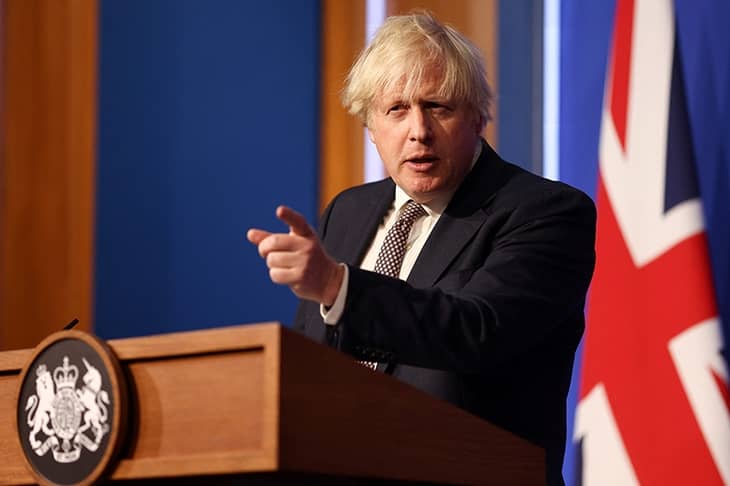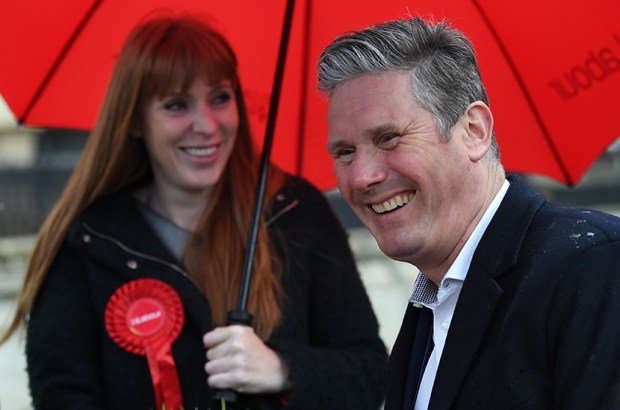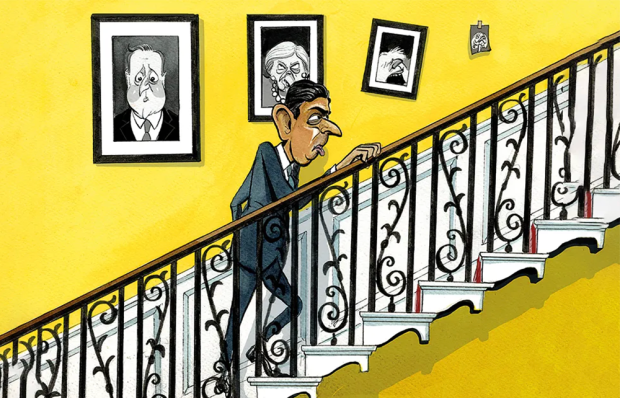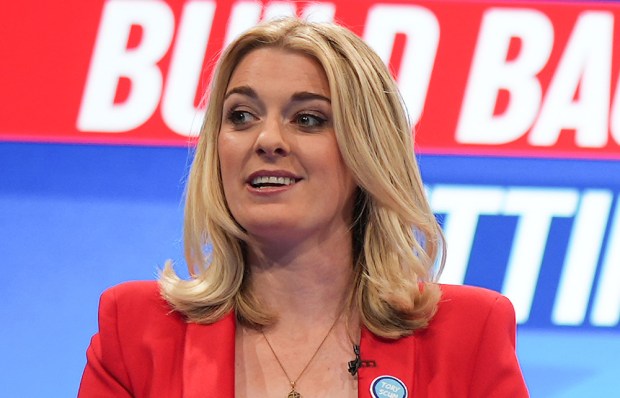Up until a few days ago, ministers could see how the government might regain its footing in the polls after several weeks of self-inflicted damage. The argument went like this: as Christmas approaches voters will see that life in Britain — and specifically England — carries on with very few Covid restrictions whereas elsewhere in Europe more draconian measures have been imposed.
This scenario seemed plausible. Austria was in lockdown and heading for compulsory vaccination; there had been rioting in Holland after the announcement of an 8 p.m. curfew and several German states had cancelled Christmas markets. In private, secretaries of state were making the case that the decision to remove all lockdown restrictions in July had been vindicated by events and that Britain’s early success with the vaccine rollout meant most of the elderly population had been offered a booster jab ahead of any winter wave. Few ministers wanted to state the argument too strongly (Covid has a horrible capacity to surprise), but Nadhim Zahawi, the former vaccines minister, now Education Secretary, did declare last week that the UK would be the first major economy to exit the pandemic.
Now many ministers are relieved that they were not as optimistic in public as Zahawi. Concern over the new Omicron variant, first identified in South Africa, has meant the government is starting to reimpose some Covid rules: restrictions on international travel, self-isolation for contacts of those who have tested positive for the new strain, masks on public transport and in shops. There is a nervous wait to see how bad things will get. No. 10 stresses that no further measures will be taken until the government has more information on Omicron.
The signs are not hugely encouraging. Early evidence suggests that the new variant is more transmissible even than Delta, which raised the threshold required for herd immunity and forced a delay in Boris Johnson’s summer reopening plan. Government scientists also think that Omicron has a quite marked ability to evade the vaccines when it comes to preventing infections. The most important consideration is whether the vaccines still offer strong protection against serious illness and hospitalisations. We will have to wait two weeks or so for the answer, to see what evidence comes out of South Africa. Lab work can give a good idea of how effective the vaccines will be at preventing infection but can’t tell us much about how serious infection would be. Interestingly though, both the Oxford and BioNTech teams think that their vaccines should continue to offer good protection against severe disease.
But if this new variant means the existing vaccines are significantly less effective at preventing hospitalisation, then the UK will have a problem. Worryingly, Clive Dix — the former head of the vaccines taskforce — says that the government has not done enough to prepare for a variant that evades vaccines. Equally worryingly, the government is looking to sell Harwell, the vaccine manufacturing plant near Oxford, which would play a crucial role in ensuring timely access to vaccines for the UK population. Even senior ministers admit that they fail to understand the logic of this decision given how the pandemic has highlighted the importance of short supply chains and domestic vaccine manufacturing capability. As Kate Andrews writes in this edition, NHS England is already struggling with only around 6,000 Covid patients in hospital. If that number increases substantially, the government will come under huge pressure to introduce new restrictions to try to protect the health service from being overwhelmed.
Politically, imposing more restrictions would be very tricky for Johnson. Tory MPs have become more opposed to lockdowns over time: 32 Tory backbenchers rebelled against even the self-isolation measures Johnson announced on Saturday in response to Omicron. If the PM believes he has to introduce more serious measures, it seems very likely he would have to rely on opposition votes to get them through. ‘If they try to ban Christmas again, it wouldn’t work,’ one senior Tory backbencher warns.
Tory MPs are more doubtful of Johnson’s judgment since the Paterson fiasco, which badly damaged the Prime Minister’s relationship with his parliamentary party. ‘The guy who was meant to be so good at reading public opinion got it so wrong,’ concedes one secretary of state. ‘We didn’t know he could misread the public so badly. That’s what has shaken the parliamentary party so much.’
The great consolation for the government is Labour’s failure to capitalise on the Tories’ problems in the last 18 months. However bad things have got, the opposition hasn’t managed to open up a decisive and lasting lead. Even after the government’s embarrassing mistakes in the last month, the polls remain roughly level. The data shows that voters are becoming more sceptical of the government’s handling of nearly every policy area, but they aren’t convinced that Labour would do any better.
The worry for the government is that this week’s shadow cabinet reshuffle leaves Labour in a better place than it was before. Ministers admit that this is the strongest Labour frontbench that they have faced in years. It has its weaknesses — too many shadow cabinet ministers were prominent in the second referendum campaign for Labour’s comfort — but it will be more effective at holding the Tories to account.
For the next few weeks, the threat of the Omicron variant will dominate British politics. If the vaccines aren’t as effective at preventing hospitalisation from the new strain, it will dominate the next few months too. The debates about what further measures should be taken would put the government in its most difficult position yet.
Got something to add? Join the discussion and comment below.
Get 10 issues for just $10
Subscribe to The Spectator Australia today for the next 10 magazine issues, plus full online access, for just $10.
You might disagree with half of it, but you’ll enjoy reading all of it. Try your first month for free, then just $2 a week for the remainder of your first year.















Comments
Don't miss out
Join the conversation with other Spectator Australia readers. Subscribe to leave a comment.
SUBSCRIBEAlready a subscriber? Log in